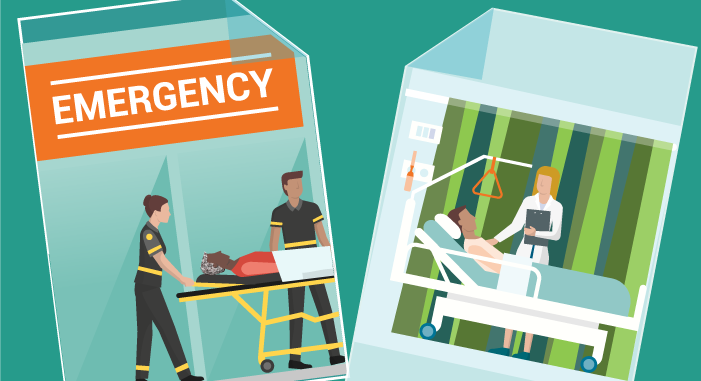In an aging world, the emergency department (ED) is the front porch of the 21st century health care system, straddling the inpatient world of medical and surgical practice with the outpatient environment of office visits, home health, and long-term care.1 Geriatric emergency medicine has emerged as a subspecialty within emergency medicine with a focus on the large and rapidly growing segment of ED patients with unique health care and social service needs: older adults. Geriatric emergency medicine, and the associated geriatric EDs take a more holistic approach to emergency care that revolves around the identification of common age-related syndromes and...
Read MorePublications & Newsletters
Editorial
GEAR 2.0 Scoping Reviews
Emergency Department Care Transitions for Patients With Cognitive Impairment
This scoping review examines the literature on care transition interventions for patients with cognitive impairment receiving ED care and what measures of quality transitions are important for older adults with impaired cognition and their care partners
Read MoreOptimal Emergency Department Care Practices for Persons Living With Dementia
This scoping review demonstrates the state of research on ED care practices for PLWDs. This review demonstrates that studies of components of ED care and emergency care needs for PLWDs are wide ranging with little depth on any topic.
Read MoreEmergency Department Communication in Persons Living With Dementia and Care
Communication factors that influence satisfaction with the hospital experience for PLWD included valuing of the person through staff actions, interactions, and person-centered care; activities of empowerment; and interactions of the environment with patient well-being (physical environment, social and organizational). Robust...
Read MoreDetecting Cognitive Impairment and Dementia in the Emergency Department
Over the last 2 decades, there have been multiple studies evaluating ED detection of cognitive impairment specifically focused on dementia. Our scoping review identified more than 45 manuscripts addressing accuracy of detection of cognitive impairment or dementia, 66 addressing pragmatic...
Read MorePublications
Adapting Emergency Care for Persons Living With
In an aging world, the emergency department (ED) is the front porch of the 21st century health care system, straddling the inpatient world of medical...
Read MoreGEAR Methods
The Geriatric Emergency Care Applied Research (GEAR) network approach: a protocol to advance stakeholder consensus and research priorities in geriatrics and dementia care in the...
Read MoreGEAR Care Transitions
The Geriatric Emergency care Applied Research (GEAR) Network aimed to identify care transition interventions, particularly addressing social needs, and prioritize future research questions.
Read MoreMoving the Needle on Fall Prevention
Falls among older adults are common and costly, and, much of the time, preventable. In this study the GEAR Network set out to find research...
Read MoreDelirium Prevention, Detection, and Treatment in Emergency
The GEAR Network identified 49 stakeholders from a variety of disciplines and backgrounds, including emergency physicians, geriatricians, nurses, social workers, pharmacists, and patient advocates, and...
Read MoreResearch Priorities for Elder Abuse Screening and
This GEAR Network review of current literature on the identification of elder abuse among patients receiving care in emergency departments and the interventions to address...
Read MoreNewsletters
Protected: A systematic review of interventions for
There is no excerpt because this is a protected post.
Read More




